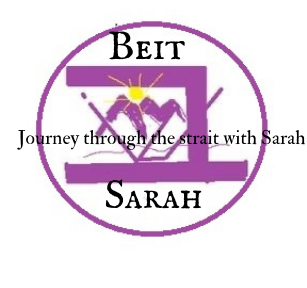
Tonight is the fifth night of Hanukkah. Why do we light candles for eight nights? Some say the tradition of kindling the Hanukkah lights stemmed from a miracle that happened more than 2,000 years ago when the Maccabees took back the temple and set about purifying and dedicating the holy altar. There was only oil for one night, but it miraculously lasted eight nights.
Even if the story is true, it does not affect the full significance of the festival; however, this festival is forever linked to miracles.
Oh Dreidel, Dreidel, Dreidel
Another tradition connected to Hanukkah is the children’s Dreidel game. Some say that the children would play this game while secretly being lookouts. They would creatively warn their parents when they saw Greek soldiers approaching.

Each Dreidel is inscribed with four Hebrew letters on each side. The first is the letter נ Nun. The second letter is ג Gimel. The third letter is ה Heh. The fourth letter is ש Shin.
To play the game, each player takes a turn spinning the dreidel and putting game pieces such as chocolate gelts into the pot. If the Dreidel falls on the נ Nun, the player does nothing. The ג Gimel means that the player receives everything in the pot but must put back one piece. The ה Heh means that the player receives half of the pot and puts back one piece to keep the pot replenished, and ש Shin means that the player puts two pieces back into the pot.

Love my Latkes…


Gorging on chocolate coins after winning the pot in a rousing game of dreidel is nice, but don’t forget the Latkes and Sufganyot or jelly doughnuts.
Nes Gadol, Haya Sham
The four letters on the dreidel are an acrostic that spells the phrase: נס גדל היה שם NES Gadol Hayah Sham – “A Great Miracle Happened There.” The word “NES” really means Banner or flag but is often understood as miracle. Just as a flag is placed so it can be clearly seen, the miracle of Hanukkah can be clearly seen and recognized for what it is.
On the first night of Hanukkah, we say three. Blessings when we light the candles. On the other seven nights, we say only two Blessings. The second of the two Blessings is praising Hashem “for performing נסים(nissim) miracles for our forefathers…”
So what was the great miracle that took place then? Was it the small, ragtag group of guerillas who valiantly won against the mighty Greeks? Was it recapturing and rededicating the altar in order to make it fit for service to Hashem the G-d of Israel? Or, was it just about one day’s supply of oil that lasted for eight days?
To me, the Great Miracle was the Jewish people regaining their Jewish pride and spiritual identity as evidenced by the rededication of the altar and the resumption of true service to Hashem.
Just yesterday, I had the opportunity to work on getting more grounded in my Jewish identity. A Judge granted my request to change my English birth name to my Hebrew name. Baruch Hashem! I see this as my miracle this Hanukkah. I hope that every Jew will take the time to remember what it means to be truly Jewish.
Finding the נס Nes in ניסיון Nisayon
Life is a test (nisayon). The wonderful thing is that the word for miracle is part of the word for test. Sometimes, all we can see is the test, and in so doing, we miss the opportunity to manifest the miracle. Conversely, we can focus so much on the miracle and the imagined ease that we completely give in and take the easy way out away from Hashem.
The word Hanukkah means dedication. Hanukkah is a reminder that no matter how far we fall away from G-d, there is always a way to return. The man who committed the first murder realized this when he named his firstborn son Hanoch (Enoch) which comes from the same root as Hanukkah. (See Genesis 4:17)
Antiochus defiled the Holy Temple and the Altar. The Deliverers did not destroy the Temple or the Altar. Instead, they rebuilt and purified them. They rededicated the Altar upon which the pagans had placed their idol altar. (See 1Maccabbees 1:1-4:52)
Perhaps we defiled our temple (our bodies) with non-kosher food, sacrificing swine to our bellies. Perhaps we have engaged in different forms of immorality, or in some way neglected and despised the Holy Torah. The Good News is that the gate of T’shuvah (repentance) is wide open during these days of the Festival of Dedication, so enter in and let your light shine.
Chag Sameach Chanukkah!

Leave a comment